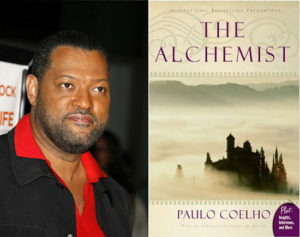With all this talk of dubstep and trap, it’s easy to lose sight of the original bass movement in dance: drum ‘n’ bass. When the genre hit the States in the late ‘90s, one of its breakout stars was the charismatic Goldie, whose gold-plated teeth weren’t even his most definitive feature. Goldie’s productions merged acetate-cut, club-ready d ‘n’ b with melodies, strings, and emotion, bringing the sound overground. The DJ, producer, label head, actor, graffiti artist and public speaker is now celebrating 20 years in the scene, with three-CD compilation The Alchemist: The Best of Goldie 1992-2012, out March 11.
Born Clifford Joseph Price, Goldie has sold over 2.5 million records during his 20-year career (driven by hits like Angel, included on Alchemist), in addition to running the Metalheadz label, which he founded with Kemistry & Storm in 1994. The discography page for Metalheadz reads like a who’s who of drum ‘n’ bass history. The label has not only released groundbreaking mixtapes, like their Platinum Breaks series, but also tracks from artists including Doc Scott, Grooverider, Dillinja, Photek, Adam F and more.
Now Goldie tells CODE that he’s working on a new artist album, featuring collaborators like Flying Lotus, Burial and Photek. The pictures included in the deluxe edition of Alchemist tell their own story. Check out the exclusive snaps throughout this page and read on for career advice, a history lesson, and a drum ‘n’ bass 101 primer from Goldie.
What do you think when you hear the phrase “EDM”?
Number one, I don’t know any of this EDM America or EDM UK. If you want to talk about EDM, let’s talk about Detroit underground music, Chicago house and let’s talk about all the things that got us to this place. We all get on the train of dance music. We need to all respectfully look through the carriages that have come before us and realize how we got here.
The new generation of kids is so connected to the Internet, yet they have no history about where they come from and know nothing about the music. When you’re part of any genre, it’s suicide to not respect where it came from.
We need to think about the younger generation. I made my first record at 27, and there are people who are 17 and 18 out there making records. Technology is acceptable and accessible now, and there’s a whole generation of people who are turned onto this music. What are we going to do, just turn a blind eye to them? We still need to try and educate them.
My whole thing with EDM is, if you have integrity and yet you regress in how you’ve been as an artist, there’s something not quite right there. If you’re just here to get paid, I find that very culturally indifferent. When you go into the studio, you have to know what you’re going in there for. I went into the studio because I had a voice and I wanted to change things, and I don’t necessarily mean my bank account. The money is almost a B factor, a side product.
Read more: Billboard


